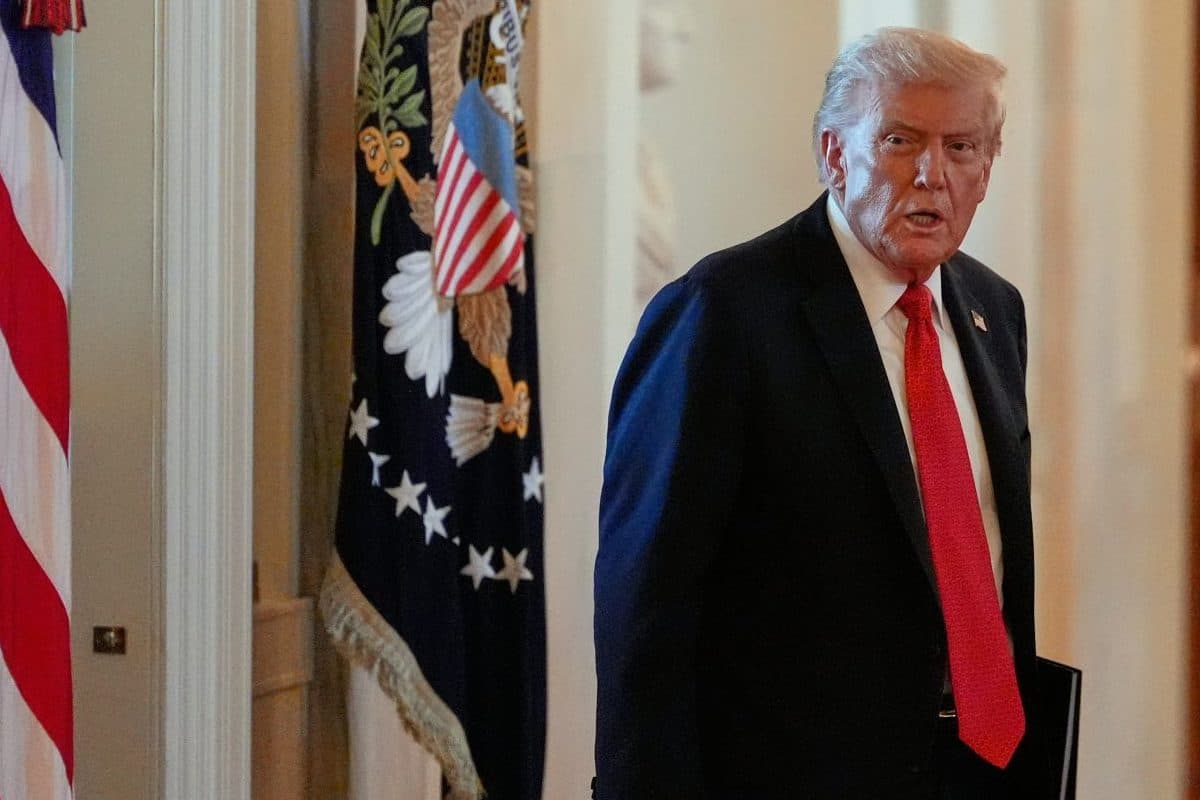We're loading the full news article for you. This includes the article content, images, author information, and related articles.
The abrupt halt in negotiations between the G7 partners over a political advert signals rising global trade instability, with potential ripple effects for Kenyan exporters and financial markets.

GLOBAL – The United States has unilaterally terminated all trade negotiations with Canada, a move President Donald Trump announced late Thursday, October 23, 2025, creating significant uncertainty for the North American and global trade landscape. The decision was triggered by a Canadian advertising campaign that criticized US tariffs using the words of former US President Ronald Reagan.
White House economic adviser Kevin Hassett confirmed the President's "frustration" with Canada on Friday, October 24, stating that negotiations had not been "collegial." "The Canadians have been very difficult to negotiate with," Hassett told reporters, citing a "lack of flexibility" and suggesting the ad was the final straw in months of tense talks.
The controversial ad, part of a $75 million campaign by the government of Ontario, Canada's largest province, features excerpts from a 1987 radio address where President Reagan warned that "trade barriers hurt every American worker." The campaign was launched by Ontario Premier Doug Ford to protest US tariffs of up to 35% on Canadian goods like steel, aluminum, and timber.
In a series of posts on his Truth Social platform, President Trump called the ad "FAKE" and accused Canada of trying to illegally influence an upcoming US Supreme Court case on the legality of his global tariff regime. The Ronald Reagan Presidential Foundation stated that the ad "misrepresents" the former president's remarks and that permission was not sought for their use, adding that it was exploring legal options.
The suspension of talks throws the future of the United States-Mexico-Canada Agreement (USMCA), which governs over $1.8 trillion in annual trade, into question. The agreement, which replaced NAFTA in 2020, is scheduled for a formal joint review in July 2026, a process now fraught with high stakes.
While the dispute is geographically distant, its economic shockwaves have the potential to reach East Africa. Trade tensions between two of the world's largest economies contribute to global economic volatility, which can impact Kenyan markets. Such instability often leads to a strengthening of the US dollar and a risk-averse sentiment among global investors, potentially putting pressure on the Kenyan Shilling and affecting foreign direct investment flows.
Kenya's trade relationship with the US, largely governed by the African Growth and Opportunity Act (AGOA), is critical. In 2024, total trade between the two nations was valued at $1.5 billion. However, an increasingly protectionist US trade policy presents a direct challenge to Kenyan exporters, particularly in key sectors like textiles, coffee, and tea, who could face higher costs and reduced demand if global trade disruptions slow the US economy.
The International Monetary Fund has previously estimated that a significant global trade conflict could shave 0.5% off global GDP growth, disproportionately affecting export-reliant developing nations. For Kenya, whose primary exports include tea, coffee, and horticultural products, a slowdown in major consumer markets is a significant concern. The situation underscores the need for Kenya to continue diversifying its export markets beyond traditional partners to mitigate risks from such geopolitical disputes.
Domestically, the Trump administration's move has drawn criticism. Senate Minority Leader Chuck Schumer announced that Democrats would force a vote to overturn the "damaging" tariffs, which he claimed were a key driver of higher prices for American consumers. "Americans cannot afford Donald Trump's price-spiking tariff temper tantrums," Schumer stated, as reported by Politico.
It remains unclear if President Trump will discuss the issue with Canadian Prime Minister Justin Trudeau (incorrectly identified as Mark Carney in some initial reports) at the upcoming 47th ASEAN Summit in Kuala Lumpur, Malaysia, scheduled for October 26-28. For now, the White House maintains that further talks are a "futile effort" until Canada engages more seriously. The Canadian government has stated it stands ready to resume negotiations when Washington is willing.
Keep the conversation in one place—threads here stay linked to the story and in the forums.
Sign in to start a discussion
Start a conversation about this story and keep it linked here.
Other hot threads
E-sports and Gaming Community in Kenya
Active 9 months ago
The Role of Technology in Modern Agriculture (AgriTech)
Active 9 months ago
Popular Recreational Activities Across Counties
Active 9 months ago
Investing in Youth Sports Development Programs
Active 9 months ago